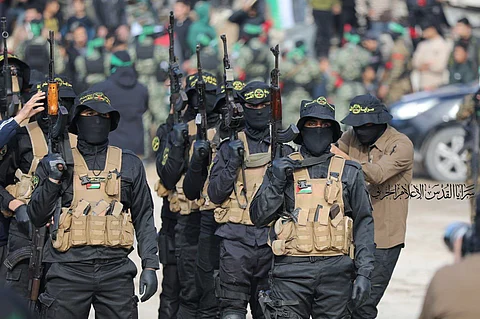

The Syrian government has reportedly expelled several armed Palestinian factions that had long been based in Syria and maintained close ties with the government of President Bashar al-Assad.
Among the groups expelled are the Palestinian Islamic Jihad (PIJ) and the Popular Front for the Liberation of Palestine – General Command (PFLP-GC), along with other factions. According to Palestinian sources cited in media reports, members of these groups were ordered to hand over their weapons and leave the country, with many relocating to Lebanon and other destinations.
Syria has hosted large numbers of Palestinian refugees since 1948, following the first Arab-Israeli war that resulted in the expulsion of Palestinians from what was then British Mandatory Palestine. Many of the expelled factions had operated in Syria for decades.
Over the past month, several leaders and members of PIJ and PFLP-GC were arrested by Syrian authorities. Around the same time, Syria also handed over classified documents related to the case of Israeli spy Eli Cohen, who was executed in Damascus in 1965.
The crackdown on Palestinian factions is believed to be part of a broader agreement with the administration of U.S. President Donald Trump. According to multiple reports, Washington had demanded the expulsion of these groups as a condition for offering sanctions relief to Syria.
Syria has also reportedly entered indirect talks with Israel, with the United Arab Emirates (UAE) serving as a mediator. Some reports even suggest that direct talks have occurred between Syrian and Israeli officials in Azerbaijan, where the possibility of normalization has been discussed.
Notably, the expulsion did not target Hamas or Fatah—the latter being the dominant faction within the Palestinian Authority (PA) and the successor to the Palestinian Liberation Organization (PLO). Hamas had previously relocated its headquarters from Damascus in 2012 during the early stages of the Syrian civil war, eventually aligning with the opposition against Assad. Fatah, backed by Western governments, was likely viewed as politically distinct from the other groups.
The disarmament of Palestinian factions in Syria coincides with a similar initiative in neighboring Lebanon. The Lebanese government has announced that it will begin disarming Palestinian groups operating within the country’s refugee camps starting in June—a move that is also supported by both the United States and Israel.
Some observers warn that attempts to disarm Palestinian groups in Lebanon could provoke instability or violence, especially given the fragile security situation. While Hezbollah, weakened last year following the assassination of former General Secretary Hassan Nasrallah and much of its senior leadership, has adhered to a ceasefire with Israel, despite Israel’s daily violations, it remains unclear whether the Lebanese state and army have the capacity to enforce disarmament within the camps if resistance emerges. Such a scenario could potentially reignite tensions and trigger the re-emergence of other armed factions within Lebanon.